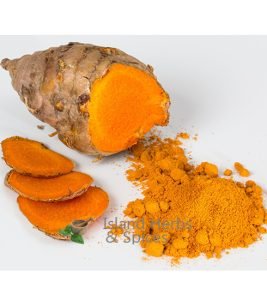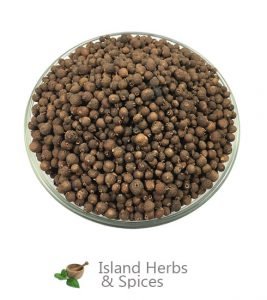How to Use Herbs and Spices to Enhance Your Immune System
The immune system is the body’s defense mechanism against infections, illnesses, and diseases. While a balanced diet, regular exercise, and adequate sleep play pivotal roles in maintaining a robust immune system, herbs and spices can also provide a natural and flavorful boost. Let’s explore how incorporating these powerful plant-based ingredients into your daily diet can enhance your immune system and support overall health.
Conclusion Herbs and spices offer a simple yet powerful way to enhance your immune system naturally. Whether it’s the golden warmth of turmeric, the zesty kick of ginger, or the aromatic charm of oregano, these culinary gems are more than just flavor enhancers. By thoughtfully integrating them into your diet, you can create a harmonious blend of taste and health that fortifies your body’s natural defenses.
1. Understanding the Immune-Boosting Power of Herbs and Spices
Herbs and spices are rich in bioactive compounds such as antioxidants, vitamins, minerals, and essential oils. These compounds help combat oxidative stress, reduce inflammation, and strengthen immune responses. From fighting harmful pathogens to supporting gut health—a key player in immunity—herbs and spices are valuable allies in building resilience against illnesses.2. Top Herbs and Spices for Immunity
a. Turmeric
Turmeric contains curcumin, a potent anti-inflammatory and antioxidant compound. Curcumin boosts the body’s ability to fight off free radicals and enhances immune function. Combine turmeric with black pepper, which improves curcumin absorption, for maximum benefits.- How to Use: Add turmeric to soups, teas, or golden milk. It’s also great for seasoning roasted vegetables or rice.
b. Ginger
Ginger is celebrated for its ability to reduce inflammation and alleviate cold symptoms. Its antimicrobial and antioxidant properties make it a staple in immune-boosting remedies.- How to Use: Incorporate fresh ginger into teas, smoothies, or stir-fries. It’s also excellent as a flavor enhancer in soups and curries.
c. Garlic
Garlic is a powerhouse of sulfur compounds like allicin, which have antiviral and antibacterial effects. It stimulates white blood cell activity, a key component of the immune system.- How to Use: Use fresh, crushed garlic in salad dressings, marinades, and sautéed dishes.
d. Cinnamon
This aromatic spice is loaded with antioxidants and has anti-inflammatory and antimicrobial properties. It helps regulate blood sugar levels, which is vital for maintaining overall health.- How to Use: Sprinkle cinnamon on oatmeal, yogurt, or baked goods. It’s also perfect for spicing up beverages like coffee or chai.
e. Echinacea
Known for its immune-boosting and infection-fighting properties, echinacea is often used as a supplement or herbal tea.- How to Use: Brew echinacea tea or use it in tinctures and syrups.
f. Oregano
Oregano contains compounds like carvacrol and thymol, which have potent antimicrobial and antioxidant properties.- How to Use: Use fresh or dried oregano in sauces, dressings, or herbal teas.
3. How to Incorporate Herbs and Spices Into Your Routine
Blend Them Into Teas
Herbal teas made with ginger, turmeric, or echinacea are not only soothing but also an effective way to absorb immune-enhancing nutrients.Create Immune-Boosting Tonics
Homemade tonics like honey-lemon-ginger elixirs can provide concentrated doses of immunity-supporting ingredients.Spice Up Your Meals
Incorporate herbs and spices into your cooking for both flavor and health benefits. Soups, stews, and salads are excellent dishes to experiment with.Use Herbal Supplements
If you’re unable to use fresh or dried herbs regularly, herbal supplements like garlic capsules or echinacea extracts can be convenient alternatives.4. Tips for Optimal Benefits
- Choose Fresh and Organic: Fresh or organic herbs and spices have higher nutrient concentrations and fewer contaminants.
- Store Properly: Keep dried spices in airtight containers, away from heat and light, to preserve their potency.
- Practice Moderation: Overconsumption can lead to adverse effects. Use herbs and spices in reasonable amounts.
- Consult a Healthcare Provider: Before starting any herbal supplements, especially if you have underlying conditions or take medications, consult a professional.
5. The Holistic Impact of Herbs and Spices
Incorporating herbs and spices into your diet does more than just boost immunity. They enhance digestion, reduce inflammation, and promote overall wellness. By making these natural ingredients a staple in your kitchen, you can enjoy flavorful meals while supporting your body’s defenses.Conclusion Herbs and spices offer a simple yet powerful way to enhance your immune system naturally. Whether it’s the golden warmth of turmeric, the zesty kick of ginger, or the aromatic charm of oregano, these culinary gems are more than just flavor enhancers. By thoughtfully integrating them into your diet, you can create a harmonious blend of taste and health that fortifies your body’s natural defenses.
Read More
Categories:
Jamaican Herbs





